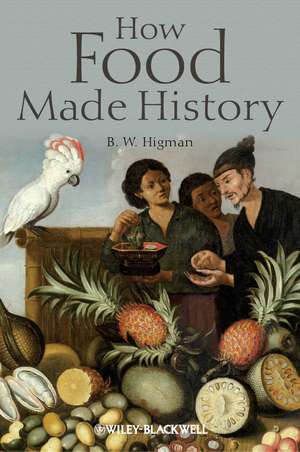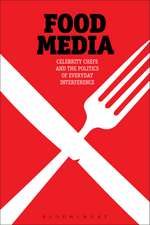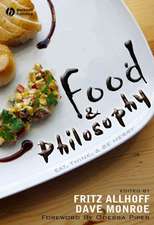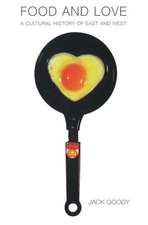How Food Made History
Autor BW Higmanen Limba Engleză Hardback – 6 oct 2011
| Toate formatele și edițiile | Preț | Express |
|---|---|---|
| Paperback (1) | 258.90 lei 43-57 zile | |
| Wiley – 6 oct 2011 | 258.90 lei 43-57 zile | |
| Hardback (1) | 475.69 lei 43-57 zile | |
| Wiley – 6 oct 2011 | 475.69 lei 43-57 zile |
Preț: 475.69 lei
Preț vechi: 517.06 lei
-8% Nou
Puncte Express: 714
Preț estimativ în valută:
91.02€ • 95.29$ • 75.32£
91.02€ • 95.29$ • 75.32£
Carte tipărită la comandă
Livrare economică 07-21 aprilie
Preluare comenzi: 021 569.72.76
Specificații
ISBN-13: 9781405189484
ISBN-10: 1405189487
Pagini: 276
Dimensiuni: 153 x 232 x 19 mm
Greutate: 0.52 kg
Ediția:New.
Editura: Wiley
Locul publicării:Chichester, United Kingdom
ISBN-10: 1405189487
Pagini: 276
Dimensiuni: 153 x 232 x 19 mm
Greutate: 0.52 kg
Ediția:New.
Editura: Wiley
Locul publicării:Chichester, United Kingdom
Public țintă
Scholars and students of the History of Food and Culture in departments of History and related fields such as Anthropology and sociologyCuprins
Notă biografică
B. W. Higman is Emeritus Professor of the Australian National University and Emeritus Professor of the University of the West Indies. He has published several books on the history of slavery and the social and economic history of the Caribbean. He has taught courses on world food history, and is the author of Jamaican Food: History, Biology, Culture (2008).
Descriere
How Food Made History offers a wide-ranging overview of 5,000 years of global history, a period dominated by agriculture and urbanization. It traces the changing patterns of food production and consumption that have molded economic and social life and contributed fundamentally to the development of government and complex societies.














